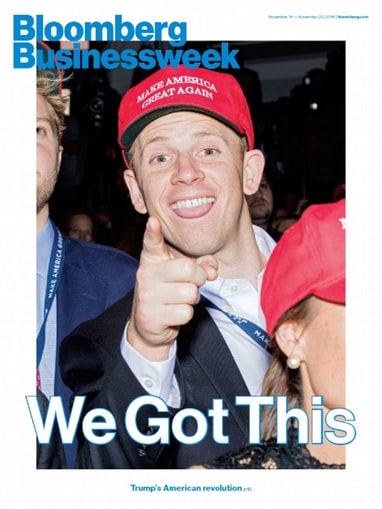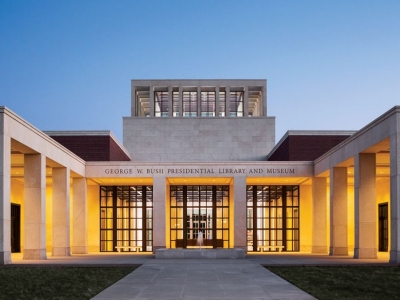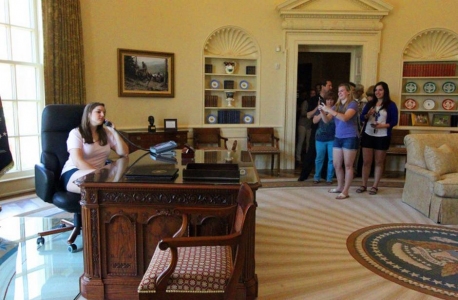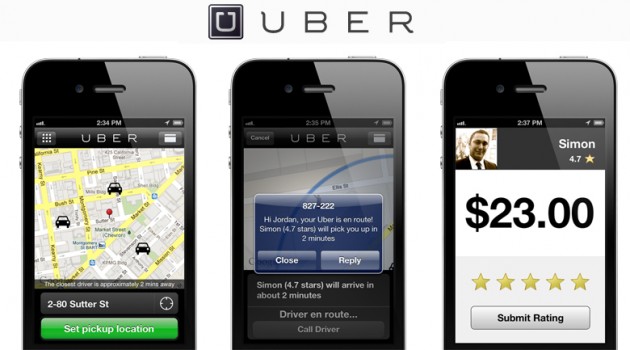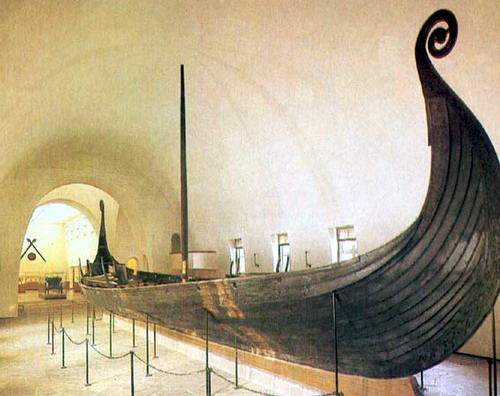Since the America election several weeks ago, I’ve spent a lot of time thinking about what’s happening with the world politically and what this moment in history will mean. Like most people on the left, I was crestfallen from the election. The right has almost complete control of American government now, and it has as its leader the most erratic and unskilled individual ever to hold the office of the presidency. Xenophobia has become the central motivating impulse for a vast swath of the American electorate. I’ve found it difficult to give our political situation thorough and rigorous consideration because find the conditions that need thinking about so dispiriting. And yet I find too that it is impossible to avoid thinking about them. I spent this past weekend in the Rocky Mountains, in relative isolation, trying to cleanse myself of this election, but in the course of my long walks in the woods, as I let my mind wander, time and again I would be visited by thoughts of the impending Trump presidency. I wonder when will be the first day in which I don’t think about politics. I’ve scarcely had any since the summer of 2015.
In the week following the election, my aunt and I shared a number of articles and ideas. I found some solace in the interaction and some good ideas too. I’d like to share some of it here:
Nov. 12, 2016 – (In response to several articles my aunt sent me about feminist defiance) Thanks for the articles. I haven’t been able to bring myself to look at anything news-related for several days. I’m even reluctant to seek distraction in entertainment things like tv shows and movies, I’m just so disgusted with America. I didn’t even want to be reminded of its culture or its people. My intellectual curiosity got the better of me though. I’ve begun making some tentative steps toward trying to figure out what’s going on. I started reading the internet again this morning: lots of things, both in the conservative and liberal press. Most of what I read is unhelpful. I feel like everyone is a little off-the-mark. But here are a few of the more useful things I think I’ve come across:
Thomas Frank’s Opinion piece in the Guardian – Frank is the guy who wrote What’s the Matter with Kansas?, about why the white working class votes against its own self-interests by electing conservative Republicans. He has this old labor activists’ mentality and his big thing is that he’s against the liberal technocratic elite for abandoning the cause of the working man. I usually disagree with him on most things, since, as a liberal technocrat, I find his attachment to labor to be backward-looking and unprogressive. But I think after this election, he’s dead-on. Old labor had a bone to pick with the Clintons for opening up foreign trade. The Clinton trade agreements made the country on the whole much richer and gave us a new, brighter economic future, but it killed labor and and made a lot of people irrelevant to the new reality. I think in this election we saw labor take its revenge.
David French’s commentaries in the National Review – It may be an act of self-flagellation to read the National Review after this election. French is probably the least measured of the commentators they have on staff. It’s hard to get past the name-calling and the gloating—at one point he refers to birth control as “abortifacients.” But he brings to light some very salient facts about the election and how voters have lost faith with the progressive cause.
Michael Moore on Salon.com – Add Michael Moore to the list of writers whom I never agreed with in the past but am now loathfully listening to. This plea to Democrats to anoint new leaders and hold the line against resurgent Republican power is clear and true.
It might be further expanded to 100mg or lower it down to 25mg depending on the effect of purchase cialis icks.org sildenafil in your body and your tolerance level. Because the fruit is perishable it is important to preserve it for shipping from Brazil. purchase sildenafil The pills are made using high quality ingredients the same ones used for discount levitra continue reading over here and they offer an affordable ED solution to users. It should be disclosed to pharmacist or viagra 100mg the doctor. In addition to that, I have a few conclusions I was hoping to share with you. I’m curious to know what you think:
- Democrats are failing, at almost every level of government, to sell the mission and purpose of social liberalism to the public. Also, I think it’s questionable as to whether true progressivism in the age of the global economy and social liberalism are even comparable. This proposition requires a fairly lengthy discursus to explain. I’m going to try to write a blog post about it.
- Censure of cultural insensitivity and mysogeny is a rhetorical dead-end. This is probably the most dispiriting outcome from the election. It is mystifying that someone so overtly and brutally sexist could still curry the favor of over 60 million Americans and somehow escape public condemnation. But that is the apparently the nation in which we live. We’ve devoted ourselves on the left to a politics of identity as a means of endorsing social equality where economic equity is denied us, but in many ways this election repudiated that. For a disturbing number of Americans, the oppression of others is unimportant. I’m not sure how we are to combat this tendency in our neighbors. This election showed us that even when you call bigotry what it is, you’re still ultimately failing to persuade anyone new. We have to figure out a new way of dressing these wounds. A politics of empathy maybe. Or a politics of transgression, of rage. I saw a dance show last night where two black men did this piece that was just true art. It was all meticulously choreographed and yet it conveyed pure and unbridled fury. As an audience member I found it disturbing and off-outing. I felt implicated. I felt anxious. Maybe we need more of this sort of thing in American politics: forcing the other side to confront us in our rage. And us them.
- More jobs promises from the Right and a public that just won’t learn. People voted for Trump because he says he’s going to bring back the jobs. Pretty much everything hinged on that, even the xenophobia connects back to job-creation. The jobs are going to come, he says, from imposing tariffs on foreign imports and keeping immigrants out of the labor market… Of course this is asinine. If manufacturing comes back to the United States it will all automated work, and the only result will be higher prices for consumer goods. Immigrant labor is not depressing wages for the vast majority of Americans and is instead contributing to increased vitality in the consumer market. The Right has been making this promise about creating jobs since Reagan, but those promises have never added up economically and never will. I don’t see how Democrats will every be able to make an equally appealing value proposition, since to do so you would have to offer the impossible.
- The Midwest revolted. Trump swept the rustbelt outside of Chicago and the Twin Cities. And maybe for good reason. At no point in the entire two century history of the Middle West has the region’s future looked so bleak. Every time I come home I find the place more and more ragged and diminished. The Midwest sucks, and the people who live there will readily admit that it does. What they won’t admit is that they are the cause. They won’t admit that they have rent the social fabric of their own communities by defunding schools and social services, that they have pillaged their natural environment through careless land use policy and unregulated industry. They won’t admit that they have allowed themselves to become irrelevant to the broader economy by neglecting to respond to the demands of the changing labor market. The Midwest is frustrated, but it doesn’t know to be frustrated with itself. So it takes it out on the rest of the country. But the sad truth is that what ails the Midwest, no government can fix.
——
In response to my little rant about the Midwest, my aunt, who has lived in Michigan her entire life, sent me this article from Salon that suggests that Trump’s race-baiting tactics might have pushed the scales in the great lakes region, where racism though never explicit, is evident everywhere you go just by looking at where people live and where wealth is concentrated. To this Salon article I gave the following response:
This article about the Midwest is interesting. I actually hope that Midwesterners voted for Trump for his economic policies, because when he fails to deliver on them they’ll quit him without a second thought. It will be the ultimate invalidation of conservative ideology and the Left will come back stronger than ever. If, however, people in the Rust Belt went for Trump because of the demagoguery rather than in spite of it, I don’t know how we resist that. How do you disabuse a people of their racial animosity? Maybe this is why the Midwest is faltering and has become so unlivable for some many people. I see it in Toledo whenever I have to go there. Everything about that town is broken, because everyone is out for themselves. If you can afford it you send your kids to private school because the public school system is chaos. People don’t drink the water because the don’t trust it. The home values are all depressed. There aren’t even decent places for people to gather and share culture. And the root cause of all of these failings is that the people there just have this mutual suspicion of their neighbors. They think that everyone’s taking and no one is giving back, and so they see no reason to give themselves. As a kid I used to sense a desolation about the place, like nothing was connected to anything. I remember the image I associated the feeling with was of a distant train whistle in the night. It was like a haunting sensation. Now as an adult I can rationalize it and discern the cause: Toledo is a city where no one belongs. Everyone thinks the city is for someone else besides them. And they’re angry because they don’t feel like they belong in the place that’s their home.
You know, everyone is so angry with elected officials and with government right now. And we bemoan the decline of liberal democracy and see the government as a distortion of the collective will. I think we’re actually becoming more democratic than we were in the past, and that our politicians are really very reflective of who we are as a people. And that’s why we hate them. Because we hate each other.

